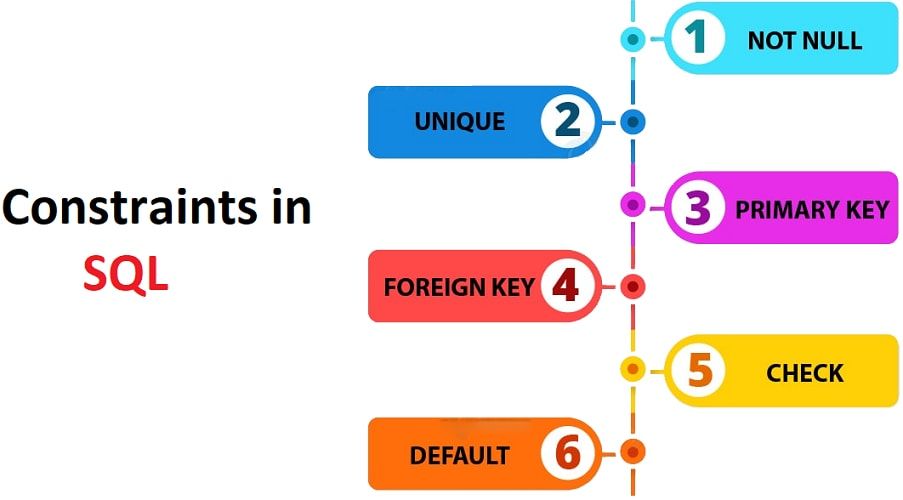SQL data constraints are essential for maintaining data integrity in your databases. They ensure that the data entered into your tables adheres to certain rules, preventing errors and maintaining accuracy. Let’s explore the key SQL data constraints:
- Primary Key
- Ensures each record in a table is unique.
- Example:
CREATE TABLE Students (StudentID int PRIMARY KEY, Name varchar(255));
- Foreign Key
- Ensures referential integrity by linking two tables.
- Example:
CREATE TABLE Orders (OrderID int, CustomerID int, PRIMARY KEY (OrderID), FOREIGN KEY (CustomerID) REFERENCES Customers(CustomerID));
- Unique
- Ensures all values in a column are distinct.
- Example:
CREATE TABLE Employees (EmployeeID int UNIQUE, Name varchar(255));
- NOT NULL
- Ensures a column cannot have a NULL value.
- Example:
CREATE TABLE Products (ProductID int NOT NULL, ProductName varchar(255) NOT NULL);
- CHECK
- Ensures that all values in a column satisfy a specific condition.
- Example:
CREATE TABLE Accounts (AccountID int, Balance decimal CHECK (Balance >= 0));
Understanding and applying these constraints can significantly enhance the reliability and accuracy of your data. Whether you’re just starting with SQL syntax, SQL Data definition Language, aggregate funtions or looking to refine your skills, mastering data constraints is a critical step.
For more detailed explanations and examples, visit TutorialsPoint and Edureka


